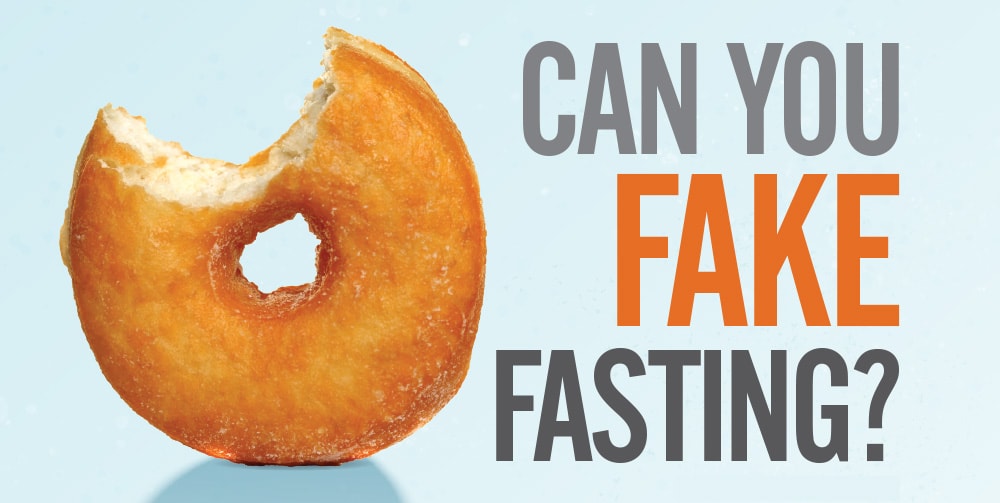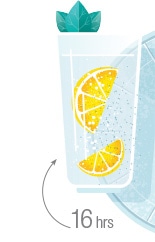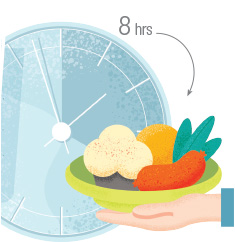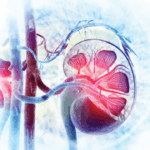
RAISE YOUR HAND if you’ve heard someone mention intermittent fasting in the last week. Is every hand up? I would imagine, yes, because that’s how popular intermittent fasting is right now. The interest in and popularity of this eating regimen has exploded, and the trend is showing no sign of slowing. Although delaying breakfast or taking the occasional day off food is hot for its weight loss potential – eat less, lose weight, duh – I have become intrigued with it for many different reasons.
While currently researching and writing a guide to longevity science, I also have a keen interest in dementia prevention, since my Dad had Alzheimer’s. Research suggests that periodic fasting could help achieve both of those goals. Besides exercise, of all the researched methods for extending lifespan and healthspan, the one that comes closest to being the fountain of youth is only eating less. I know, I know. I’m groaning, too.
WHAT HAPPENS TO YOUR BODY WHEN YOU FAST?

- Once the body has gone roughly 12 hours without food, the body’s metabolism shifts to a different gear. This is characterized by the production of unique metabolic enzymes, including one called 5’-AMP-activated protein kinase (AMPK). AMPK is the metabolic master switch. It tells cells to stop storing fat and instead convert that fat to energy.
- Another key to the longevity benefits of eating less may be simply a slowing of metabolism. I know this sounds counter-intuitive, as a slow metabolism is associated with gradual weight loss. But it’s the live fast, die young principle: think about small, speedy, short-lived creatures like mice compared to large, slow, long-lived animals such as elephants. By slowing metabolism, we also minimize the production of age-accelerating free radicals and other unhealthy biological by-products.
- Not eating for more extended periods, such as 24 hours, also triggers a process called autophagy, a form of metabolic housecleaning, by which the body clears out cellular junk, including the misfolded brain proteins associated with poor neurological and brain health.
When it comes to fasting research, animal studies are all well and good since researchers can completely control the food intake of the test subjects. In human studies, there is a specific challenge that comes up repeatedly: compliance. Cut back on food intake too much or too often, and people tend to drop out of the study. It’s just too hard to be sustainable long term, for all but the very hardcore. Eating less for the rest of your life is probably not going to catch on. But maybe you can fake it. Some natural and pharmaceutical compounds produce the same metabolic changes in the body as fasting. These are called caloric restriction mimetics, and there are three leading contenders in this exciting new league.
Caloric restriction (CR) is a reduction of energy intake, typically of 30–50%, without causing malnutrition. In studies on animals of various species, this has produced dramatically impressive results in terms of lengthened lifespan and health maintenance.
IN A CLASS OF THEIR OWN
- Resveratrol is the vital antioxidant found in grapes, mulberries, and the Japanese knotweed plant. The purported benefits of red wine, a vital component of the uber-healthy Mediterranean diet, are primarily attributed to this compound. Like fasting, resveratrol supplementation appears to reduce the sleeping and the resting metabolic rate. It also has been shown to activate AMPK, as well as other health and longevity promoting proteins that typically only peak during periods of fasting or exercise. The early human clinical trials on resveratrol have been small ones, but very promising. In overweight people, 150 mg per day resulted in effects of mimicking fasting, including lowered triglycerides, liver fat levels, and a slight decrease in blood pressure.
- Metformin – throughout the world, metformin is one of the most commonly prescribed medications for diabetes. Beyond blood sugar control, researchers discovered that people taking this prescription were living, in good health, a few years longer than expected. An extensive investigation of metformin users aged 60–80 showed improvements in rates of dementia and heart disease. Like resveratrol, the off-label benefits of metformin is its ability to activate the same special enzymes as fasting and exercise. This has made the drug popular among the non-diabetic, Silicon Valley types looking for a health and fitness edge. Since currently, metformin’s primary official use is diabetes, your health professional is unlikely to prescribe this to you unless you have elevated blood sugar. Fortunately, there is an excellent natural alternative.

- Berberine is a naturally occurring compound, and the active constituent found in ancient herbal remedies such as barberry, goldenseal, and Oregon grape. Despite having different structures, berberine and metformin (metformin is an oral diabetes medicine that helps control blood sugar levels) appear to have almost identical actions in the body. The blood sugar-lowering power of berberine is comparable to metformin, based on head-to-head studies. With that said, it’s essential to point out that you should not take metformin or berberine while fasting since blood sugar can drop too low. Berberine is available without a prescription at natural health stores, and it has been shown to reduce waist circumference, body weight, blood pressure, triglycerides, and improve insulin resistance in people with metabolic syndrome.
Again, the wide-ranging benefits of berberine are derived from the “fasting in a bottle” effect, namely activating those game-changing metabolic enzymes. Berberine has a few other tricks up its sleeve, as well. It exerts significant anti-inflammatory effects, especially in fat tissues. Carrying excess pounds is accompanied by a low-grade chronic inflammation state, and inflammation of any kind is notoriously age-accelerating. Berberine also helps with the removal of damaged proteins and other cellular debris, such as old mitochondria. Mitochondria are the tiny powerhouses in every cell of the body, so keeping them running as efficiently as possible is central to living longer and healthier.












